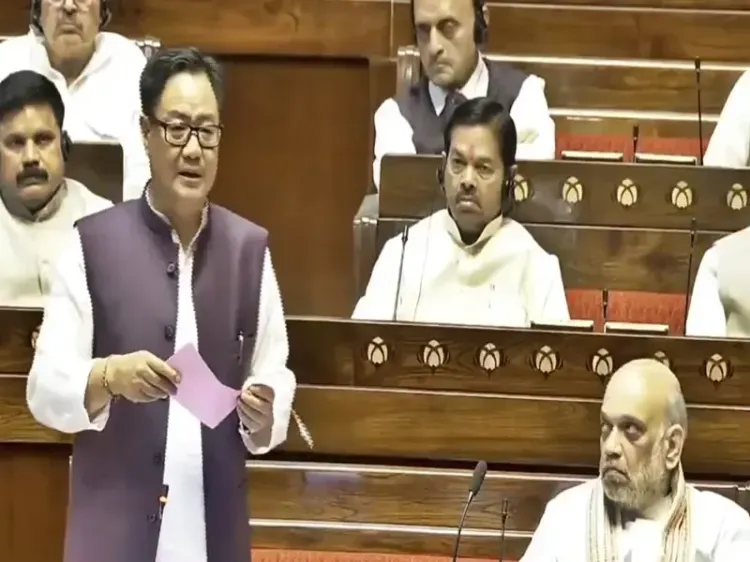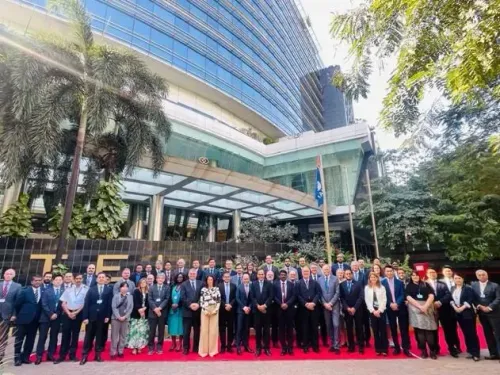Rijiju Unveils Waqf Bill in Rajya Sabha, Highlights 'Positive' Revisions Over UPA

Synopsis
Key Takeaways
- Kiren Rijiju introduced the Waqf Bill in Rajya Sabha.
- Opposition claims of non-Muslim management of Waqf properties are unfounded.
- Significant reforms include women members in Waqf Boards.
- Major amendments prevent government land claims by Waqf.
- The repeal of Section 40 addresses previous misuse.
New Delhi, April 3 (NationPress) Minister of Minority Affairs Kiren Rijiju presented the Waqf (Amendment) Bill in the Rajya Sabha on Thursday, just a day after the Lok Sabha approved it following a 12-hour marathon debate.
Rijiju, who also serves as the Parliamentary Affairs Minister, addressed the misconception being spread by the Opposition that Waqf properties would be overseen by non-Muslims, asserting that this notion is completely unfounded.
He referenced the Sachar Committee report, which reveals that the Muslim community continues to face challenges despite the Waqf Board possessing a substantial land bank.
The Minister pointed out that the Congress-led UPA government made amendments to the Waqf Bill in 2013 and noted how the 2025 amendments will rectify the ‘errors of the past’.
He mentioned that the Select Committee in 2013 acknowledged the misuse of Waqf properties, emphasizing that despite being the third largest landholder in the nation, the resources were not used effectively to aid the minority community.
“The UPA’s committee had only 13 members, while the current JPC comprises 31 members. Additionally, the frequency of meetings and deliberations held by our JPC is significantly greater,” he elaborated.
Discussing the structure of Waqf Boards, the Minister announced a significant reform that includes the participation of women members at both the central and state levels.
He stated that the Central Waqf Council will consist of 10 members, with a requirement for at least two members to be women, alongside four individuals of national prominence, such as the Additional Secretary to the Government of India.
“At the state level, the Waqf Board will be composed of 11 members, with three of those potentially being non-Muslims. Moreover, two members must be women,” he added.
He also announced the repeal of the stringent Section 40 of the Waqf Board, which allowed the religious body to claim any property as its own.
Rijiju informed the Upper House about two major amendments included in the current legislation. The first stipulates that no government land can be claimed by the Waqf, while the second ensures that the properties of Scheduled Tribes cannot be altered or designated as Waqf property.










